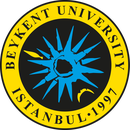
International Conference on Eurasian Economies
17-18 September 2013 – St. Petersburg, RUSSIA
Paper detail
Paper ID : 705
Status : Paper published
Language : English
Topic : Natural Resources and Environment
Presenter: Ph.D. candidate Hasan Rüstemoğlu
Session : 7A Environment & Regional Economies
Sectoral Decomposition of CO2 Emissions in China and India for the Period 1980-2010
Sectoral Decomposition of CO2 Emissions in China and India for the Period 1980-2010
- Ph.D. candidate Hasan Rüstemoğlu (Eastern Mediterranean University, TR of Northern Cyprus)
- Prof. Dr. Sevin Uğural (Eastern Mediterranean University, TR of Northern Cyprus)
Abstract
Increasing amount of CO2 emissions and global warming is one of the hottest topics of world’s agenda. At the same time there exists a public awareness about this important chapter. A lot of researcher proved that in order to live in a sustainable world, necessary regulations should be done and CO2 emissions should be reduced immediately. For this study our aim is to decompose the CO2 emissions of the world’s new super powers, China and India, over 1980-2010. In order to see the accelerating and decelerating factors for CO2 emissions, the Refined Laspeyres Index used as a method. Consistent data gathered from the official web sites of the World Bank and United Nations. Five main sectors, agriculture, manufacturing, construction, transportation and other services are used. Four different impacts, scale effect, composition effect, energy intensity effect and carbon intensity effect have been discussed to see the increasing or decreasing factors of CO2 emissions. The results were interesting. The dominant impacts were the scale effect and energy intensity effect. The minor impacts were composition effect and carbon intensity effect. Fuel switching, efficient energy use and increasing usage of renewable resources are efficient tools to reduce the emissions.
JEL codes: Q40, Q50
Rüstemoğlu, Hasan, Uğural, Sevin (2013). "Sectoral Decomposition of CO2 Emissions in China and India for the Period 1980-2010" in Proceedings of International Conference of Eurasian Economies 2013, pp.211-220, St. Petersburg, RUSSIA.
DOI: https://doi.org/10.36880/C04.00705
Session 7A: Environment & Regional Economies


